
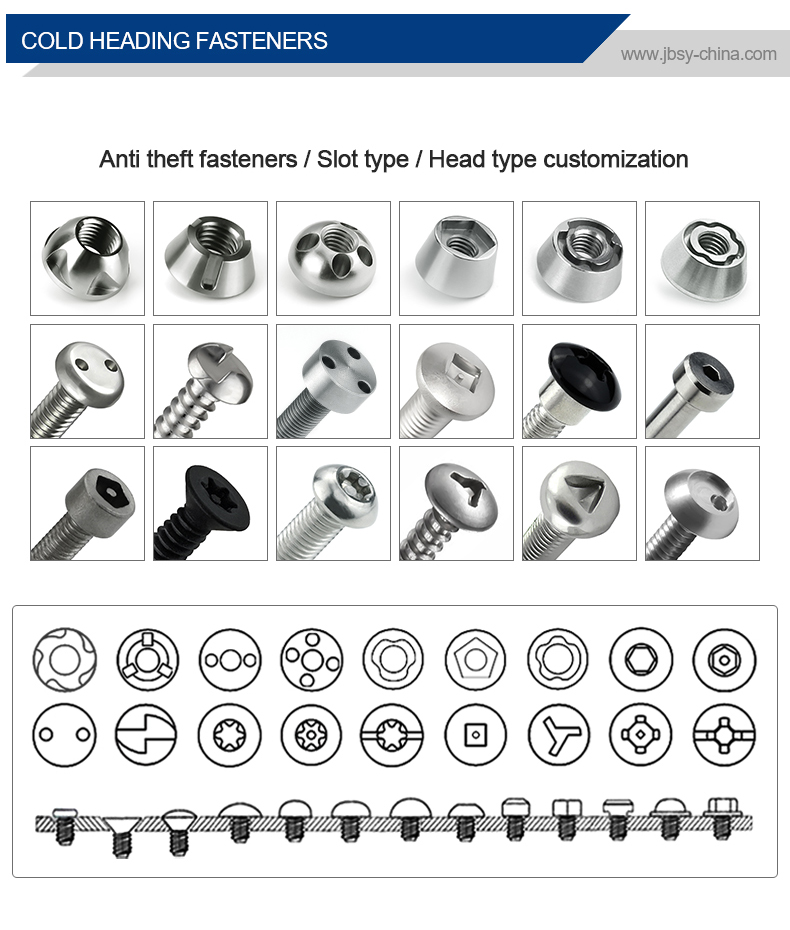
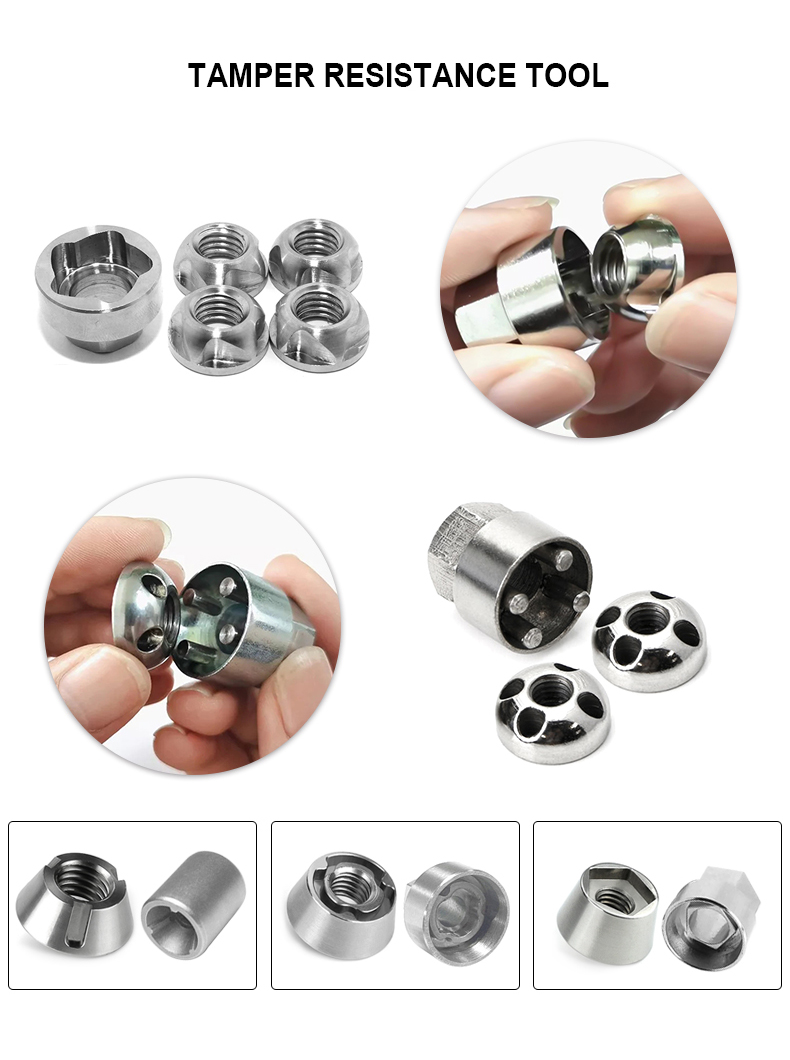
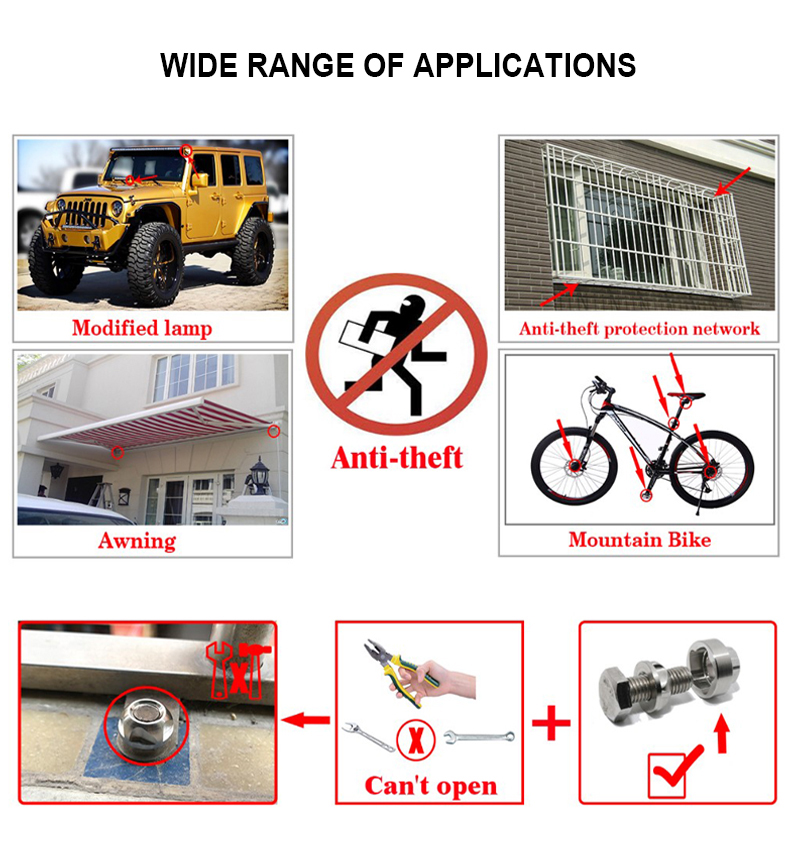
The fastening and opening of bolts and nuts adopts non-standard design, and the matching
non-standard tools are used to solve the opening and fastening problems. In general, other
wrenches cannot be inserted. In the appearance design of nuts and bolts, non-standard slotting,
opening or pentagonal, heptagonal, nine-corner or custom-made corresponding groove tools
have played a very good anti-theft effect
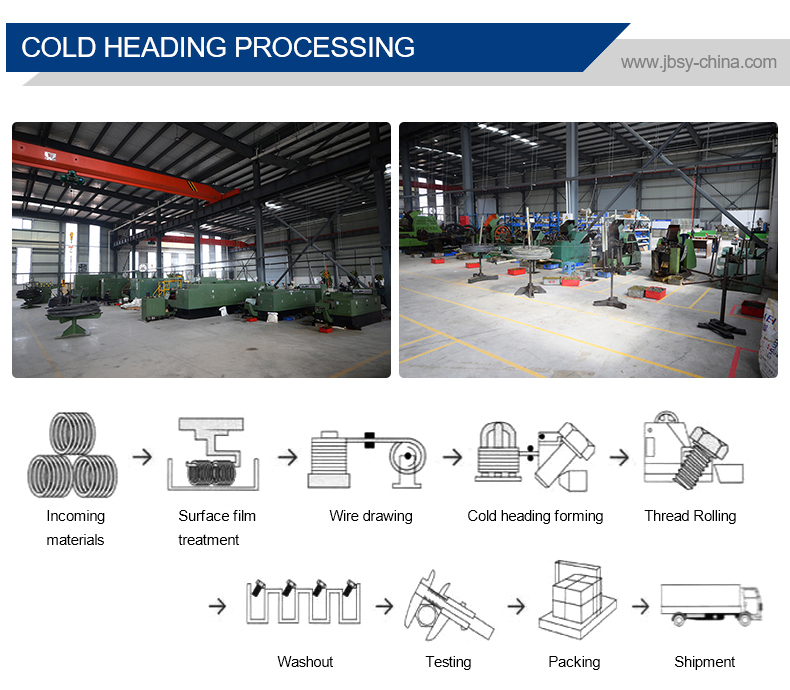
Cold heading process is one of the new processes for pressure machining of less or no cutting
metal. It is a processing method that utilizes the plastic deformation of metal under the action of
external forces, and with the aid of molds, redistributes and transfers the volume of metal to form
the required parts or blanks. The cold heading process is most suitable for producing standard
fasteners such as bolts, screws, nuts, rivets, and pins.etc
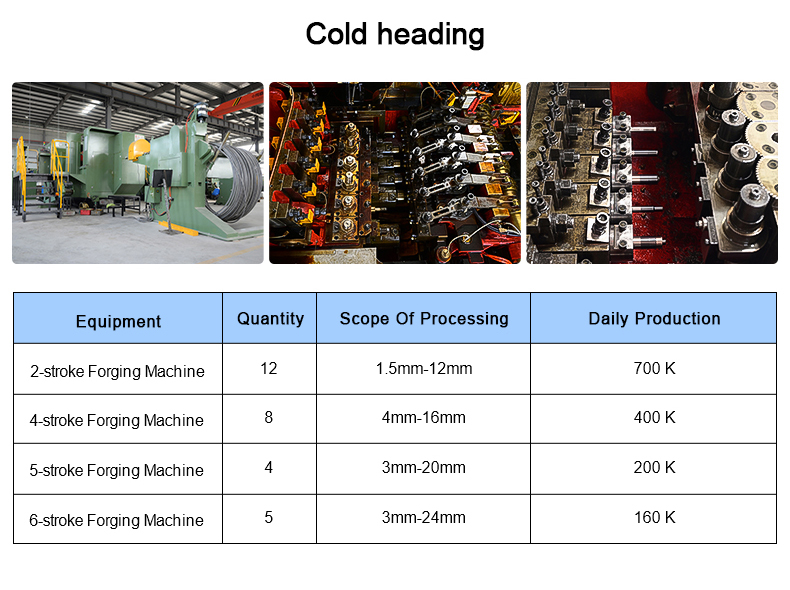
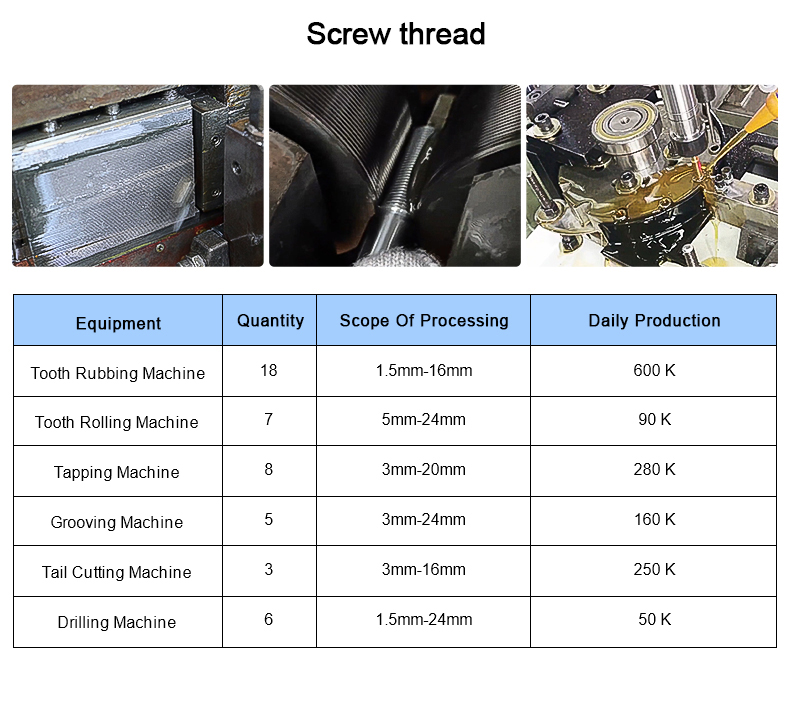
304 Stainless Steel Flange Nut – Complete Overview
1. Definition & Purpose
A 304 stainless steel flange nut is a hex nut with an integrated circular flange that acts as a built-in washer. It is made from Type 304 (A2) austenitic stainless steel, offering excellent corrosion resistance, durability, and moderate strength.
The “304” designation refers to its material composition (18% chromium, 8% nickel), while “flange” indicates its wide, load-distributing base.
2. Material Properties
-
Corrosion Resistance:
-
Resists rust, oxidation, and mild chemicals.
-
Suitable for food processing, marine, and outdoor applications (but not constant saltwater exposure—316/A4 is better).
-
-
Non-Magnetic (Mostly):
-
Generally non-magnetic but may become slightly magnetic after cold forming.
-
5. Standards & Compliance
-
ISO 3506 (Stainless steel fastener mechanical properties).
-
DIN 6923 (Metric serrated flange nuts).
-
ASME B18.2.2 (Imperial flange nuts).
-
FDA Compliance (For food-grade applications).
8. Limitations
-
Not for Extreme Chloride Exposure (e.g., seawater immersion—choose 316/A4 instead).
-
Lower Strength than high-grade alloy steel nuts.
-
Higher Cost than zinc-plated or carbon steel nuts.
Conclusion
The 304 stainless steel flange nut is a versatile, corrosion-resistant fastener ideal for moderate-strength applications where rust prevention and vibration resistance are key. It is widely used in automotive, construction, food processing, and plumbing.
For harsher environments (e.g., seawater, acids), consider 316/A4 stainless steel flange nuts.






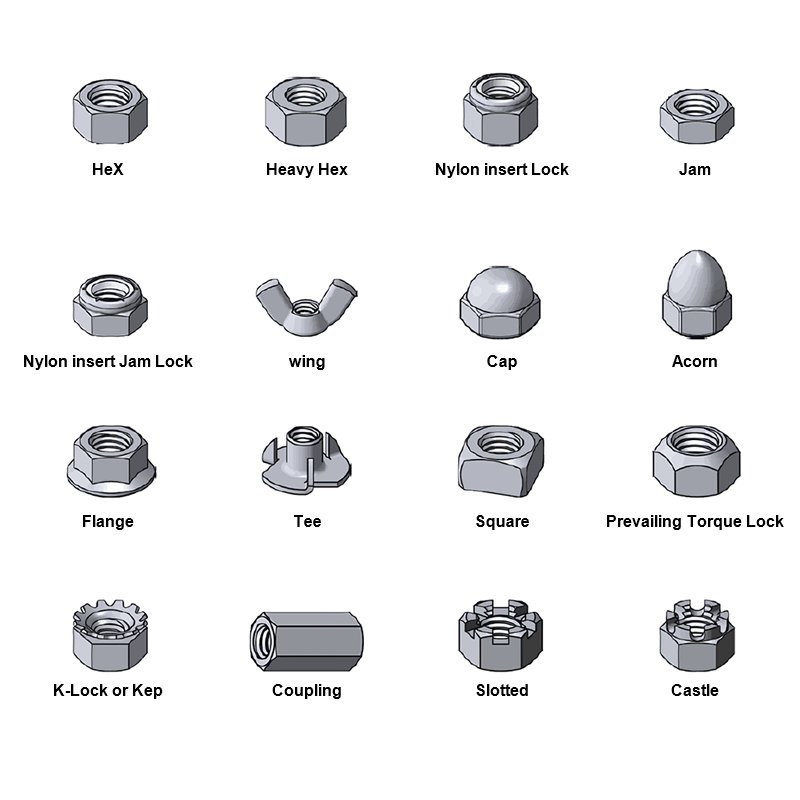
Reviews
There are no reviews yet.